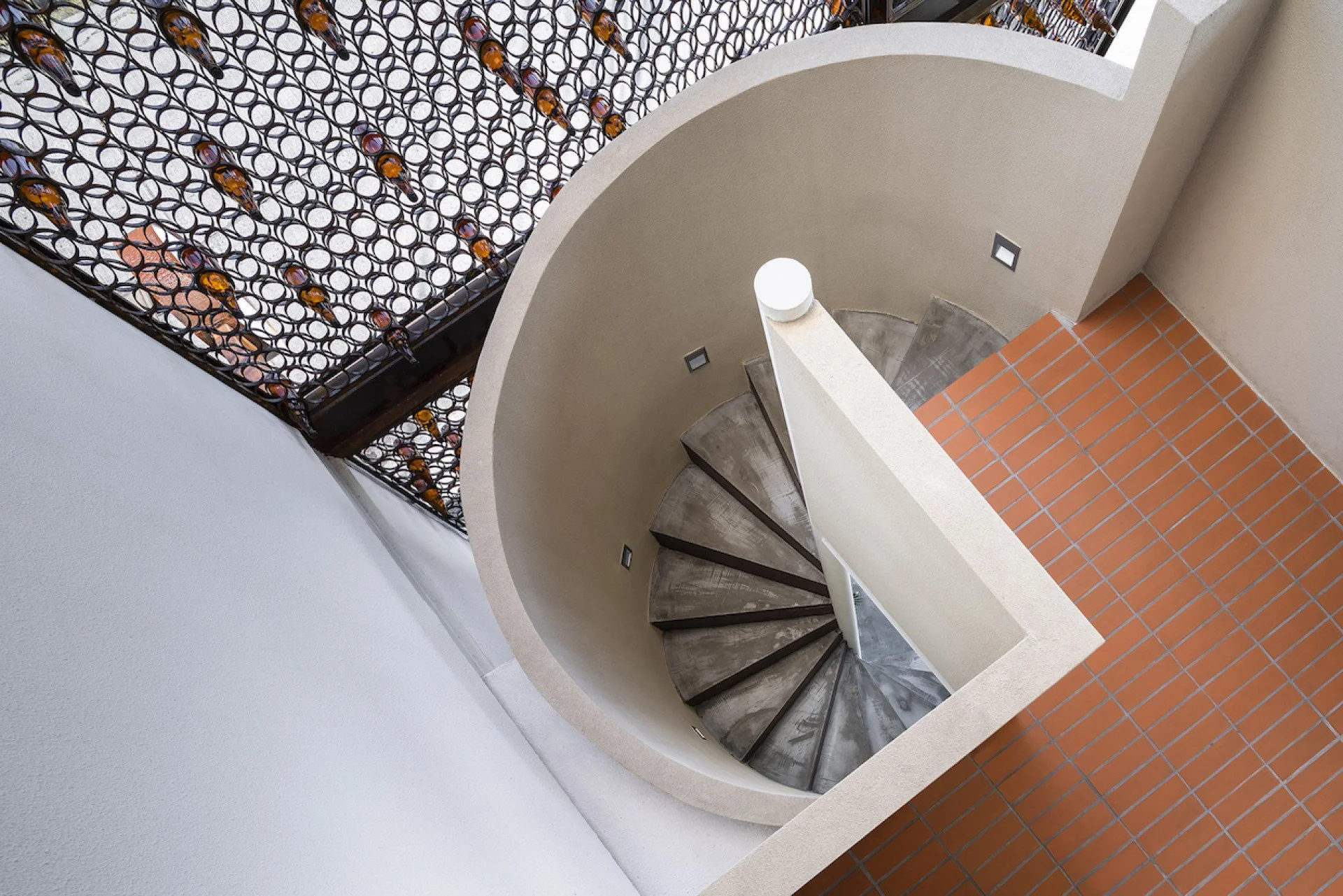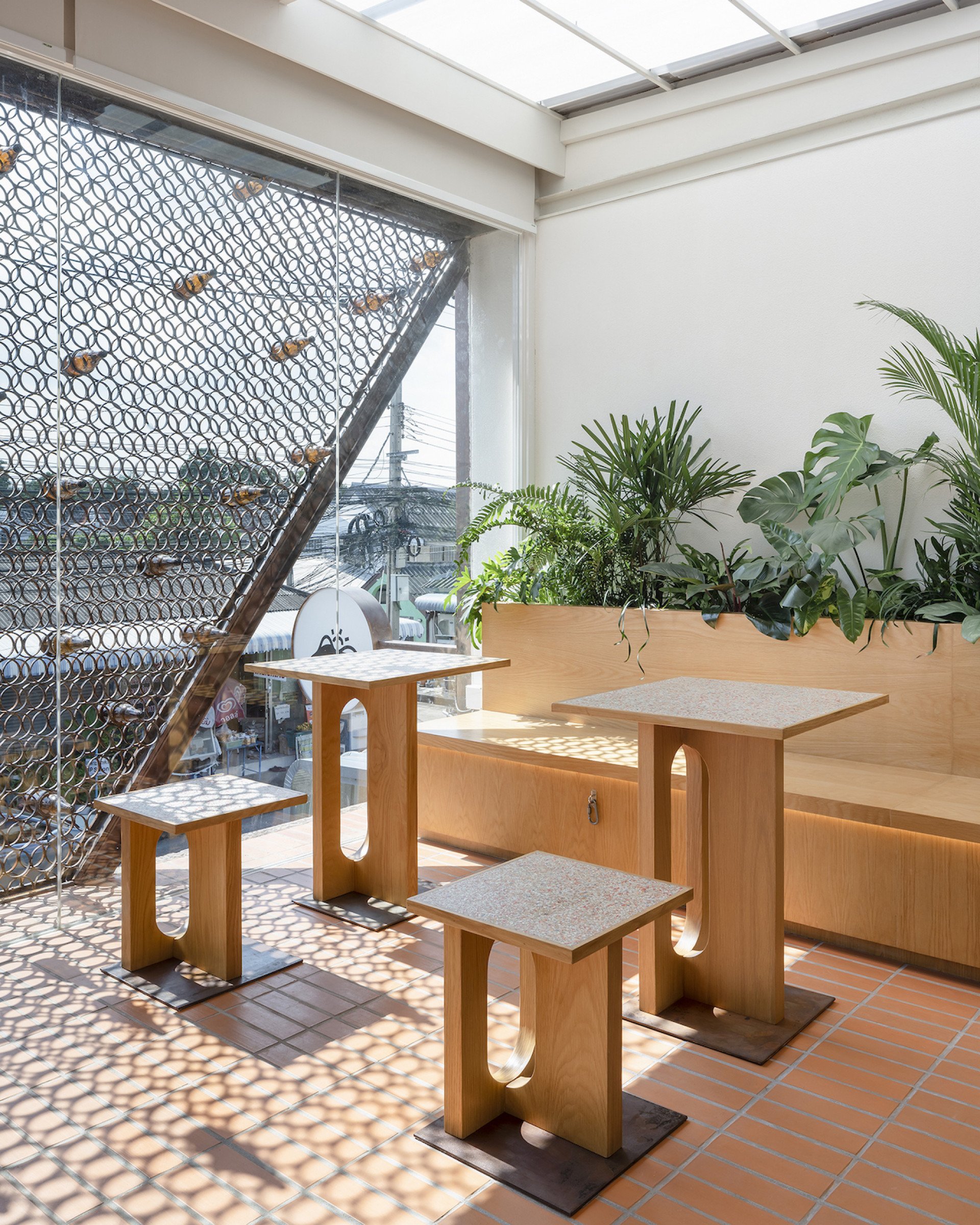A BANGKOK CAFÉ’S CIRCULAR DESIGN HELPS COMBAT LOCAL ENVIRONMENTAL ISSUES
©THANAPOL JONGSIRIPIPAT
Spacecraft used upcycled milk cartons and beer bottles as architectural fixtures and interior finishes for the Early BKK café in Bangkok.
©THANAPOL JONGSIRIPIPAT
Location:Bangkok, Thailand
Architect, Interior Design:Spacecraft
Structural Engineer:Aphichart Wongdee
Floor Area:120 sq-m
Key features
Early BKK is a café located in a residential neighbourhood of Bangkok. Its brand is premised around creating community and advocating for sustainable practices. Spacecraft was commissioned to design a café space that represents and enables these practices locally. The design of the 120-sq-m, two-storey building extensively makes use of upcycled trash and other materials sourced in the surrounding neighbourhood, like milk cartons and glass bottles, for the façade, furniture, and interior finishes. The designer collaborated with a factory to create re-board made entirely of milk cartons cut into small pieces. It was used for the door, ceiling, chairs and tables. Beer bottles were utilized in multiple ways throughout the project, with 600 needed for the façade. Some of the glass bottles were broken down and appear as the terrazzo countertop and floor of the restroom. The containers also create texture on the poured concrete walls.
©THANAPOL JONGSIRIPIPAT
©THANAPOL JONGSIRIPIPAT
The café is organized across two storeys. The ground floor is home to the main barista bara as well as a retail space, which houses coffee equipment. An additional retail space displays secondhand clothing, furthering the circularity agenda. The main seating area is located on the first floor with large widows on either side for natural ventilation. The space can be transformed to host workshops and other community activations. Additional sustainability measures were taken like the installation of solar panels on the roof, a waste separation programme, and a no-plastic policy.
©THANAPOL JONGSIRIPIPAT
©THANAPOL JONGSIRIPIPAT
FRAME’s take
Climate change is as much a local issue as it is a global issue. Though overcoming an impending ecological meltdown requires a coordinated effort on the institutional level, local communities can also act upon issues specific to them like waste pollution and management. The design of the Early BKK shows one means of doing so. Upcycling waste to be used as building material and interior finishes not only helps to redirect it from the local environment but also prevents the extraction of new raw materials. It also showcases the potential to reuse waste in unorthodox applications and to create new materials. The display of these materials in the hospitality space also communicates the circularity principle to locals, hopefully inspiring behavioural change on individual and collective levels.
©THANAPOL JONGSIRIPIPAT
©THANAPOL JONGSIRIPIPAT









